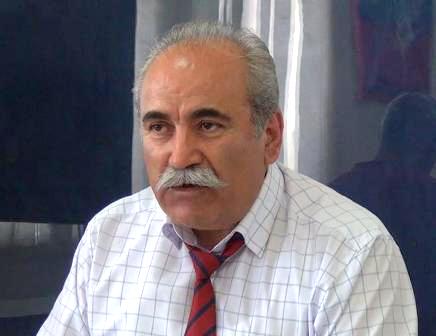 The two nations that should be leading public commemoration of the Armenian Genocide are not among them, the two nations are Turkey and Israel, said Marc David Baer, a Professor of International History at the London School of Economics and Political Science. His article was published on Haaretz.
The two nations that should be leading public commemoration of the Armenian Genocide are not among them, the two nations are Turkey and Israel, said Marc David Baer, a Professor of International History at the London School of Economics and Political Science. His article was published on Haaretz.
“Some disasters that plague humans are unavoidable, as they are acts of nature. The plagues that are avoidable are human made. Among them is genocide,” he said.
According to the author of the article, since 1923, Turkey has denied intentional massacre of Armenians. And “it has even gone so far as to make the preposterous claim that Armenians committed genocide against Turks.”
According to the author of the article, the Jewish state should be among the first to recognize the genocide, wherever it occurs, “but it prefers official silence to antagonizing its military and economic ally, no matter the anti-Semitic and anti-Israel rhetoric of Turkey’s current leader.
“Despite their own long, sorry record of suffering discrimination and occasional violence in the Turkish Republic, for decades Turkish Jewish leaders have been among Turkey’s most reliable agents of genocide denial. Why is that? The leaders of Turkish Jewry determined that the best way to guarantee the continued existence of the dwindling, insecure community is to demonstrate their unswerving loyalty to the state. The acid test for proving themselves useful allies is to agitate against genocide recognition in Israel, Europe, and the United States,” he said.
The author notes that at the end of the fifteenth century the Ottoman Empire accepted tens of thousands of Jews expelled from Spain, and grateful Jews imagined the Ottoman Sultan as their savior.
“In 1892, during the four hundredth anniversary of the 1492 “welcome” given Iberian Jewry, Ottoman Jews began to publicize the Turk as humanitarian protector. This occurred alongside the first massacres of Armenians. Promoting themselves as loyal subjects of the sultan, Ottoman Jewish leaders sided with Sultan Abdülhamid II against Armenians, who became their common enemy.
After the genocide in 1915, contemporary fear and anxiety was added to the Turkish Jewish emotional state of historical gratefulness. In the Turkish Republic, built in the ashes of the Ottoman Empire, anti-Jewish press campaigns, pogroms, and exorbitant taxation led to the loss of lives, wealth, and property.
During World War II thousands of Turkish Jews perished in Nazi camps in occupied Europe because Turkey did not recognize them as citizens. Assassination attempts of Jewish leaders and repeated deadly synagogue bombings have occurred since the 1980s,” he noted.
According to him, “to advocate a fantasy of five hundred years of harmony, the most influential Jewish leaders within Turkey – chief rabbis David Asseo and Ishak Haleva, the editors in chief of the Jewish weekly Salom and lay leaders such as industrialist Jak Kamhi andformer Jewish community president Bensiyon Pinto – opposed recognition of the Armenian genocide. They were joined by supporters in Israel (including presidents Shimon Peres and Moshe Katzav, as well as the Foreign Ministry, and the Union of Turkish Immigrants in Israel) and almost every major American Jewish organisation, including the Anti-Defamation League, the American Jewish Committee, and the Jewish Council for Public Affairs, and the most influential Jewish historians of the Ottoman Empire, Bernard Lewis and Stanford Shaw.”
“They also denied the existence of Turkish anti-Semitism.” said Baer.
The author recalls that the US House of Representatives in October 2019 adopted a resolution on the recognition of the Armenian Genocide, submitted by the Congressman of Jewish origin Adam Schiff.
According to the author, the attitude towards the recognition of the Armenian Genocide in Israel has recently changed. The consequences of such actions for the future historical Turkish-Jewish union are unclear, the historian notes, adding that “one thing is certain: Armenians and Jews, two groups whose similar history makes them natural allies, will improve their relationship which was harmed by decades of denial done in part by some of the latter’s co-religionists.”







